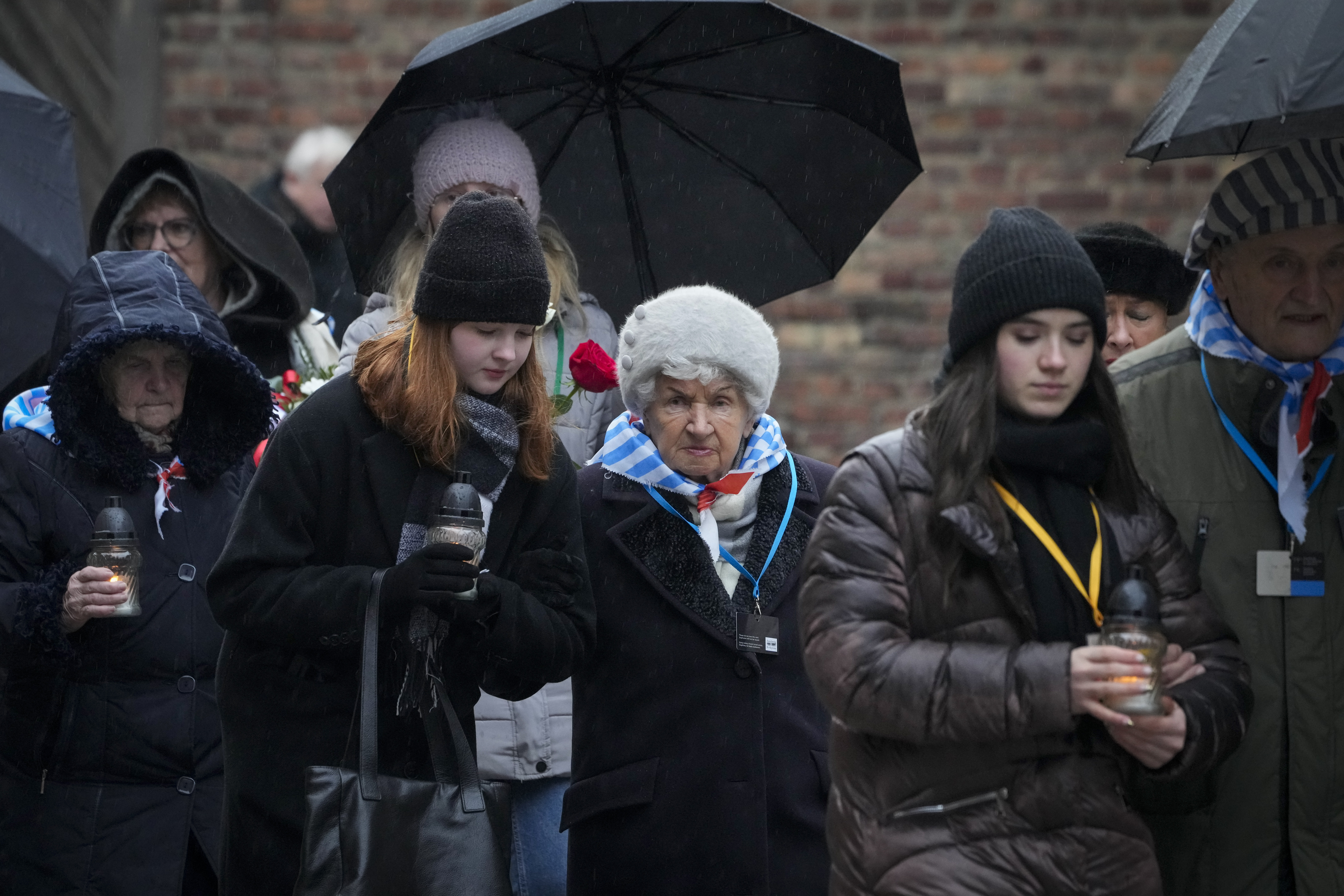Seven hundred objects from 20 museums around the world are together now, on display in Boston.
The "Auschwitz: Not Long Ago. Not Far Away." exhibit at the Castle at Park Plaza tells firsthand stories of the people who lived, worked, died and survived Auschwitz, the biggest death factory of the Holocaust.
More than one million people—mostly Jews—were murdered there, in Poland, in the heart of Europe.
What was it like for a 94-year-old woman who survived to see this? What did it mean to a child and grandchild of Holocaust survivors? They, along with curators share their reactions and talk about why it is so important to see it now.
Get Boston local news, weather forecasts, lifestyle and entertainment stories to your inbox. Sign up for NBC Boston’s newsletters.
Magda Bader survived Auschwitz as a child. She is now 94.
"For me, it's very difficult to see this exhibit because it brings me back all the horrors that I experienced in person 80 years ago," she said.
"My grandmother and her entire family were sent to Auschwitz. Her parents were killed at Auschwitz, and she had three younger brothers who were also killed in Auschwitz," Lisa Einstein, the granddaughter of Holocaust survivors, said. Einstein is president of Boston 3G president, an organization dedicated to Holocaust remembrance.
"I remember when my grandmother told me that her and her three sisters used to spoon in one bed in the triple bunk beds to keep warm and just looking at the size of the bunch beds. It comes to life for you," she said.
The horrors of the experience are difficult to fully comprehend. Organizers say they tell those stories in hopes that it never happens again.
"Humanity really crossed a line when it started to deport innocent, harmless, unarmed civilians over half a continent three, four days in cattle cars, to then dump them in a site where they are going to be put in a gas chamber and murdered," Chief Curator Robert Jan van Pelt said.
"What did the world do when Auschwitz was in operation? Why didn't they do enough? We need to remember that the same question will be asked about us today," project coordinator Pawel Sawicki said.
Tickets to the exhibit are available here. It will be on display through early September.


